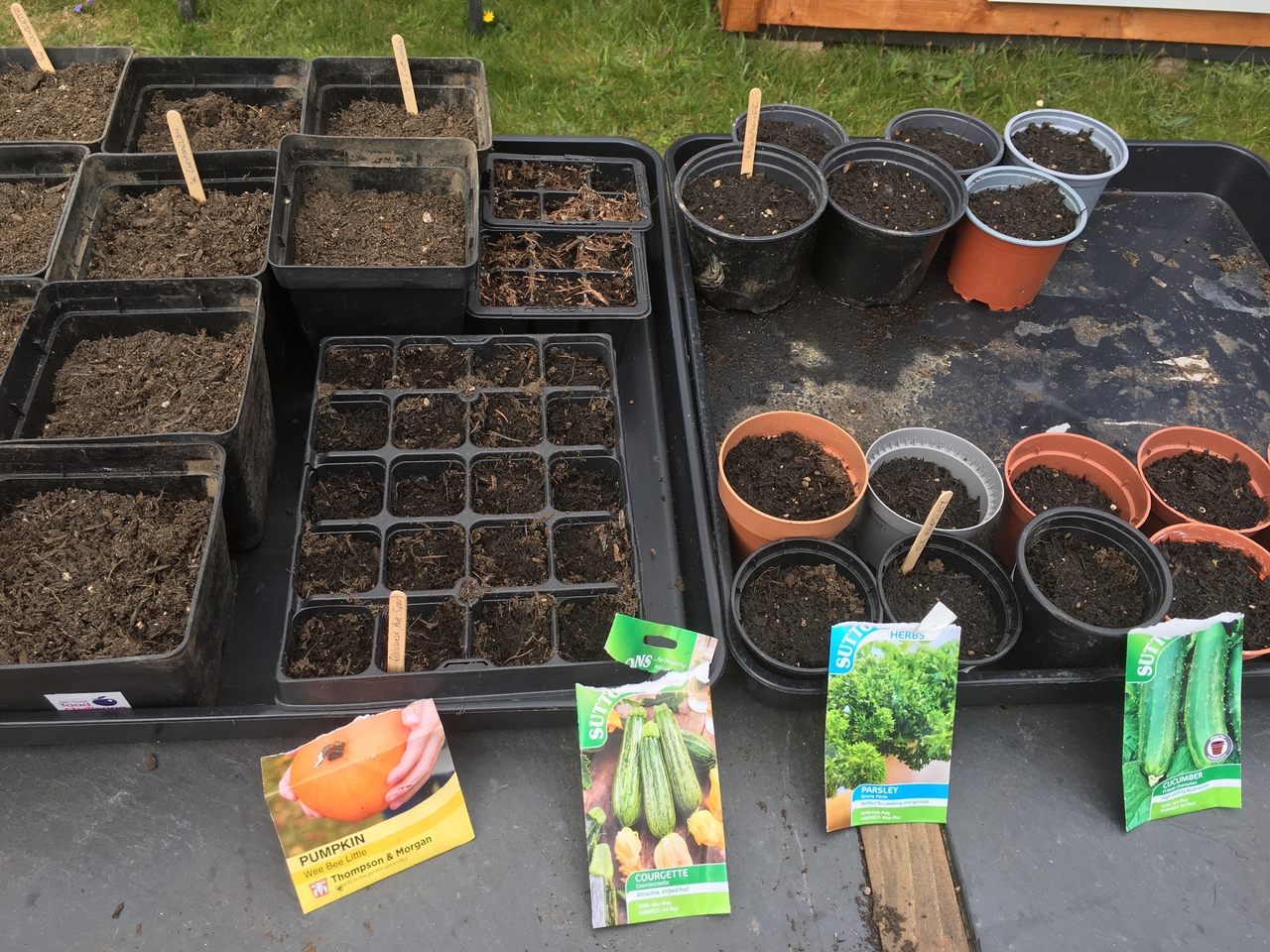Sowing Seeds for Local Food
The Pitch

Problem statement
Food poverty in local villages - New Forest Basics Bank delivers to 100 families a week, the Food Rescue Kitchen in Brockenhurst is visitied by 20 families a day. Lack of skills to grow some of your own food, the first lockdown in 2020 drew attention to this - Queues, panic-buying and supermarket shelves stripped bare. Royal Horticultural Society and National Vegetable Society reported a substantial increase in people starting to grow their own veg. Decline of bees and other pollinators - For example, managed honeybee hives in England declined by 50% between 1985 and 2005, and 67% of common widespread moth species have declined since the 1970s. Royal Society of Biology.
Solution
In 2020 lockdown a couple of us started to put our seedling excesses by our gates, available for free as people walked by. The idea grew. More people started doing the same, other started swapping their own excesses. This year we have tried to so similar, found some funding until June and deliberately bought and sown seeds to giveaway for free. We have 5 seedling stations in town and have given seedlings to the Food rescue kitchen for families to grow on. We want to continue this project in the second half of the year. Continueing to offer seedlings by the gate, to the local food hub but also grow seedlings of flowers for bees and pollinators.
Why are we best placed to deliver?
We have 5 seedlings stations already set up in roads that people walk down, and where they know seedlings can be found. Plus the people in place to look after the stations and a bike trailer for easy local deliveries. We have a Facebook page where we offer contacts, bit of help with pests and diseases and a place for people to ask questions and upload their photos. We have good relations with the food hub, who themselves have good relations with the families that use them. We have a system for recycling pots, so that keeps our costs down and means we can buy other things with the funds, plus helping to normalise reusing and sharing.
Focus Areas
Delivery plan
Budget breakdown
| Peat free compost, seeds, labels, stickers to keep sowing and donating | £450 |
| Autumn pollintors project - flowers, bulbs, compost, printing | £350 |
| Film some short videos to share on sowing, watering, harvesting, storing, jamming etc.. | £150 |
| Autumn fruit bushes, blackcurrants, larger pots, compost | £250 |
Beneficiaries
150 people
Expected impact
Sharing and learning new skills for sowing, growing, pests, harvesting, cooking... To get people of all ages engaged with what they grow, what they cook and what they eat. Creating a sense of community and working together. To encourage all the passers by, picking up seedlings to feel like they are part of something locally, which is of benefit to them and others. Creating habitats for bees and polllinators, which will in turn help the food plants to be pollinated - Our local Wildlife Trust state "Every step we take matters. Small actions add up and can make a huge difference for wildlife." Giving families an outdoor activity to do together, which hopefully results in harvesting some food and cooking and tasting it too. Plus giving them something positive and hopeful in their time of need.
Track record
New Forest Transition formed in 2008. In 2014 we changed our constitution to become a Community Interest Company. All our projects are designed to encourage sustainable living, to benefit our local communities in making long lasting changes to their lives and environments. The New Forest Food Challenge received a grant in 2009 to promote the local food economy and to encourage people to grow some of their own food. The project ran for over 8 years and interacted with over 14000 event participants. The New Forest Schools Energy Project received an grant in 2012 to promote energy efficiency in schools in the New Forest Area. The project has since expanded to include schools in the Southampton area. Our local groups are involved in running events, meetings and smaller initiatives eg Lymington group has a project called Jean Genie, preventing jeans from going to waste, they run workshops for upcycling denim into new and useful items and promoting sewing and repairing skills.